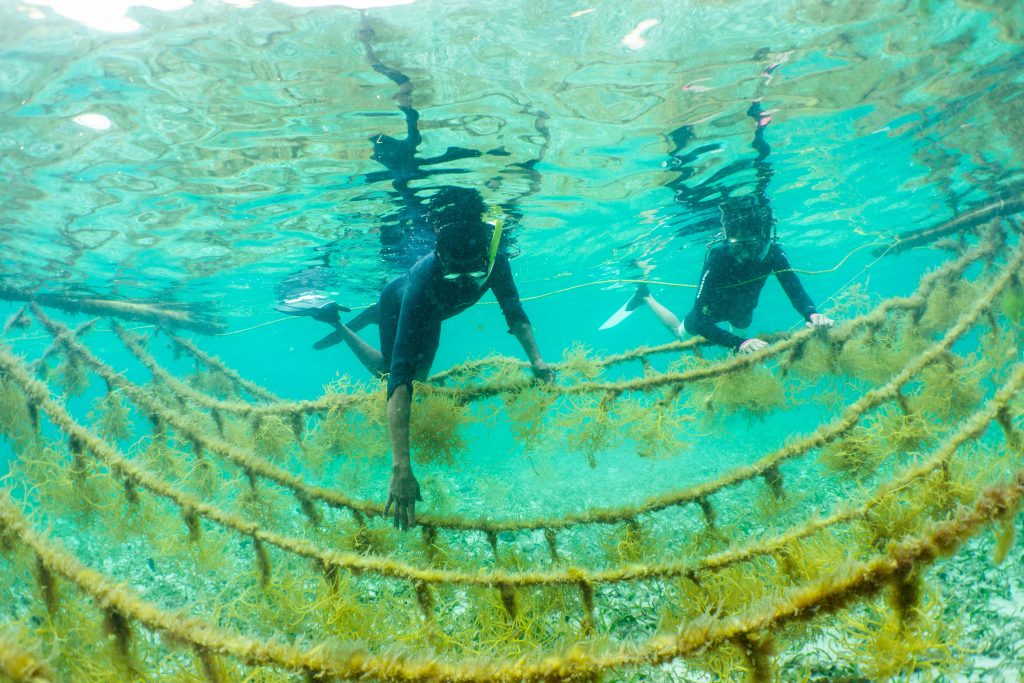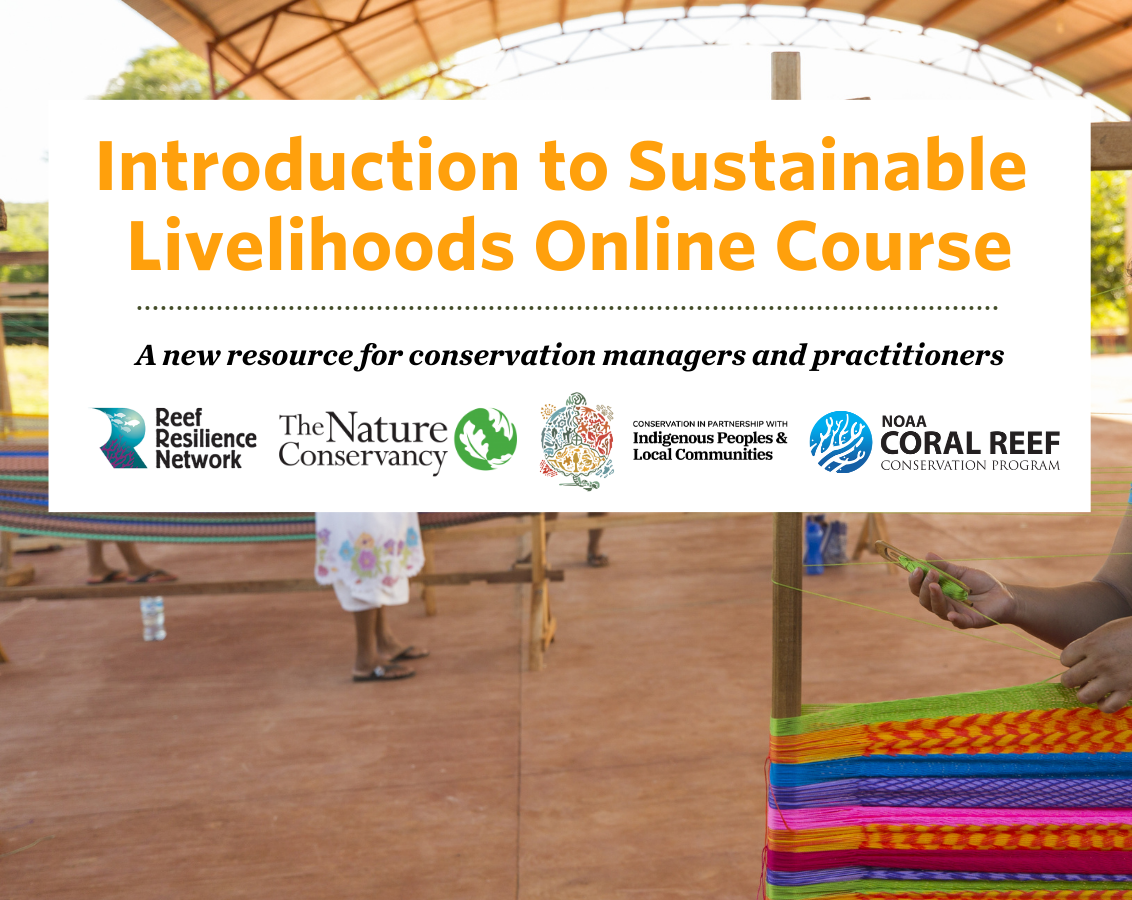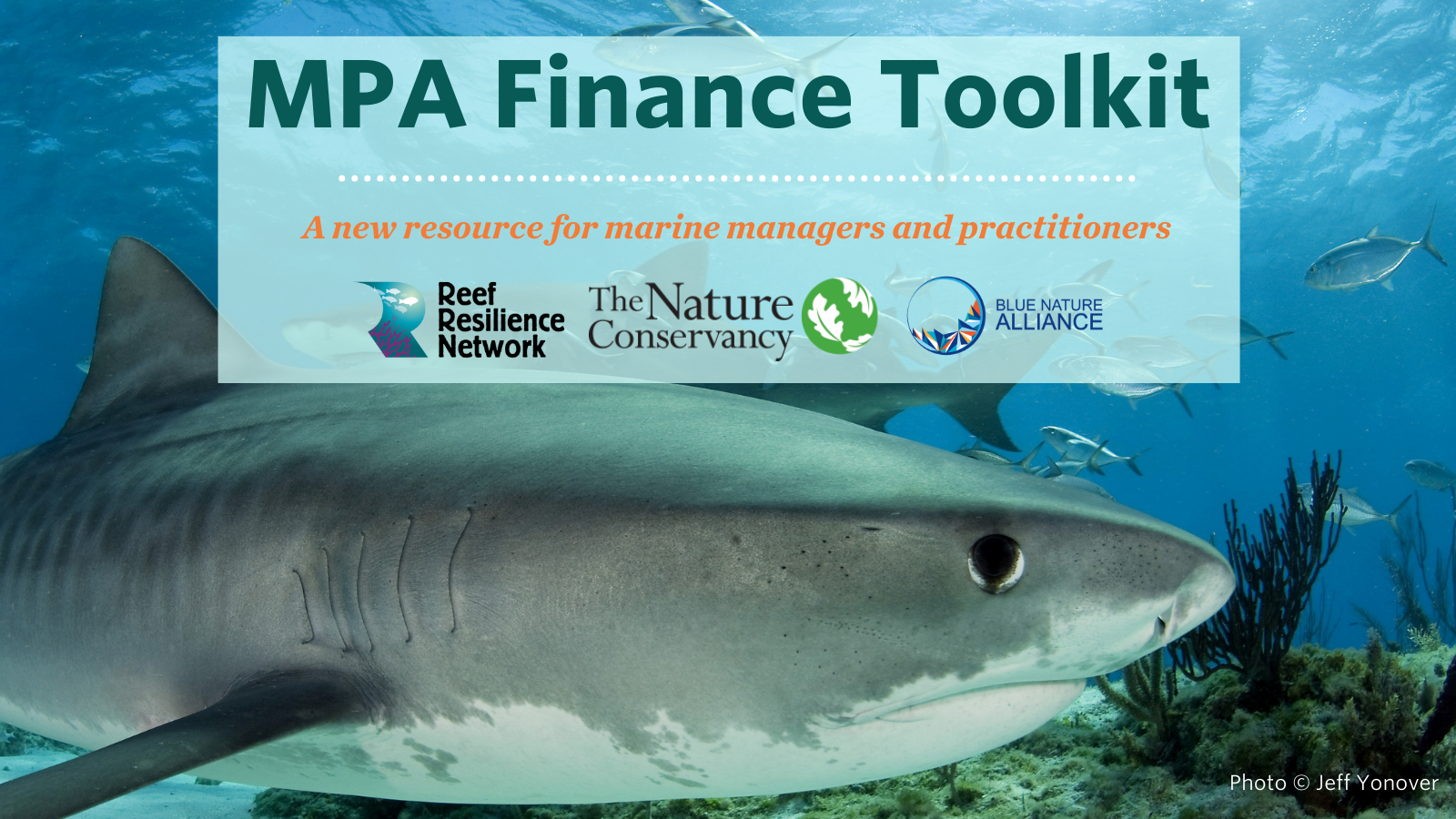
Mariko Wallen and Louis Godfrey tend to the seaweed on their farm in Placencia, Belize. This farm grows two species: Eucheuma (for consumption) and Gracilaria (used for skin treatments and cosmetics). The farm is part of a program sponsored by TNC to bring seaweed aquaculture to the area in cooperation with the Placencia Fishermen Cooperative. Photo © Randy Olson
June 14, 2022
Sustainable seaweed aquaculture, when farmed well, can relieve pressure on wild stock fishery resources and provides numerous ecological, social, political, and economic benefits. Tiffany Waters, Global Aquaculture Manager for TNC’s Global Aquaculture Program, kicked off the webinar by speaking about the benefits of restorative aquaculture and TNC’s goals to ensure that at least half of new marine aquaculture growth is from sustainable aquaculture by 2030. She also gave some background information on the Development of Sustainable Aquaculture in Coastal Communities Case Studies Report and outlined the common success factors across case studies.
Seleem Chan, Mariculture Specialist & Safety Officer for Belize Conservation at TNC, and Mariko Wallen, President of the Belize Women’s Seaweed Farmers Association (BWSFA), then discussed successes and lessons learned from community-based seaweed aquaculture in Belize. They highlighted the importance of developing partnerships and conducting genuine consultation with stakeholders, discussed the work of the BWSFA, and their vision to standardize the seaweed industry in Belize.
You can explore additional resources using the links below:
- Development of Sustainable Aquaculture in Coastal Communities
- Reef Resilience Network Aquaculture Toolkit
- Belize Women’s Seaweed Farmers Association (BWSFA)
- Restorative Aquaculture for Nature and Communities
- BBC article on Belize’s seaweed shakes
If you do not have access to YouTube, please download the recording.


